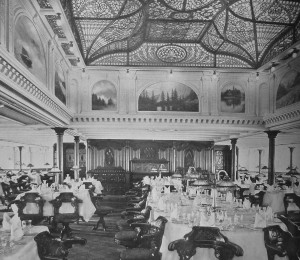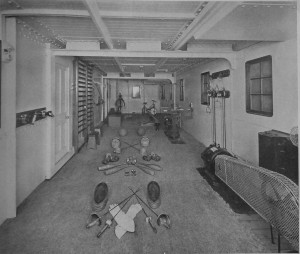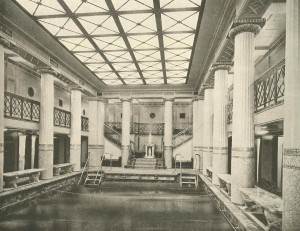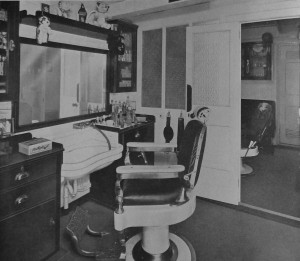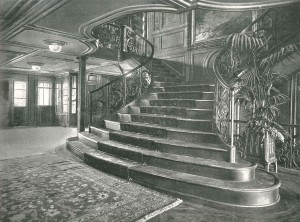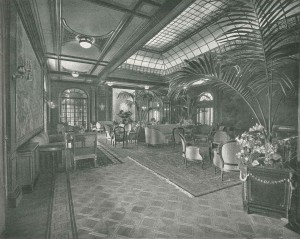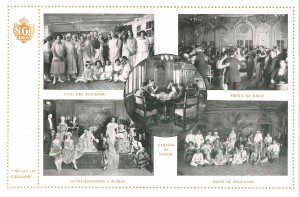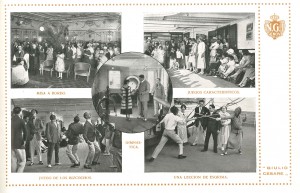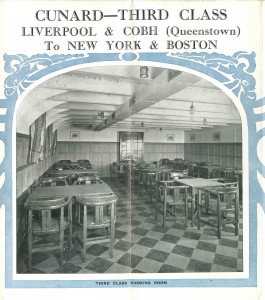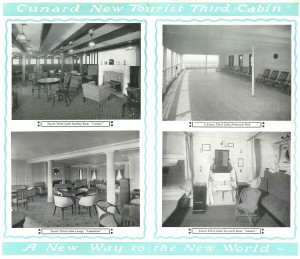Yolanda Ruiz
We are presenting the collection of publicity brochures of the naval companies that we conserve in the library of the museum. It is made up of around forty documents from the interwar period (1919-1939).
The Port of Barcelona is the biggest cruise ship port in the Mediterranean and the fourth in the world, behind the ports of the Caribbean. This type of tourism is one of the segments of international tourism which has been undergoing the greatest growth in recent years. The ship Britannia, of the company Cunard Line, was the first to make a transatlantic cruise in 1840, from the port of Liverpool and with the destination of Boston. It should be pointed out, however, that initially only a small group of people, with high purchasing power, could afford to be passengers of the cruise ships, but the ships where they went on their voyages, unlike now, also functioned as a means of regular transport. Therefore, the same ship was shared by passengers, from first class, who embarked with the aim of enjoying their holidays, with those who only wanted to travel from one place to another, and occupied the lower classes.
With the passing of time the cruise ships have become more popular and nowadays there are many tourists who choose this option in their leisure time, and above all now in the summer. That’s why we are putting on show today, our collection from the bequest of Enrique Matas-Ramis, which was given to the museum in 1857. The companies White Star Line, Navigazione Generale Italiana and the Cunard Line are the most represented. These brochures, as well as being of undeniable curiosity, are particularly useful for students of interior design studies, but also for the social history of leisure and tourism.
White Star Line
The White Star Line, founded in 1845 and which closed down in 1934, was one of the main British companies of maritime transport between the end of the 19th century and the beginning of the 20th century. One of its most emblematic ships was the Titanic, unfortunately famous for sinking.
Centred mainly on ships that operated the transatlantic routes, it incorporated a luxury class especially designed for the passengers taking a cruise. The brochures corroborated the fact that these customers were provided with luxurious installations and had services for their wellbeing and relaxation available to them.
Navigazione Generale Italiana
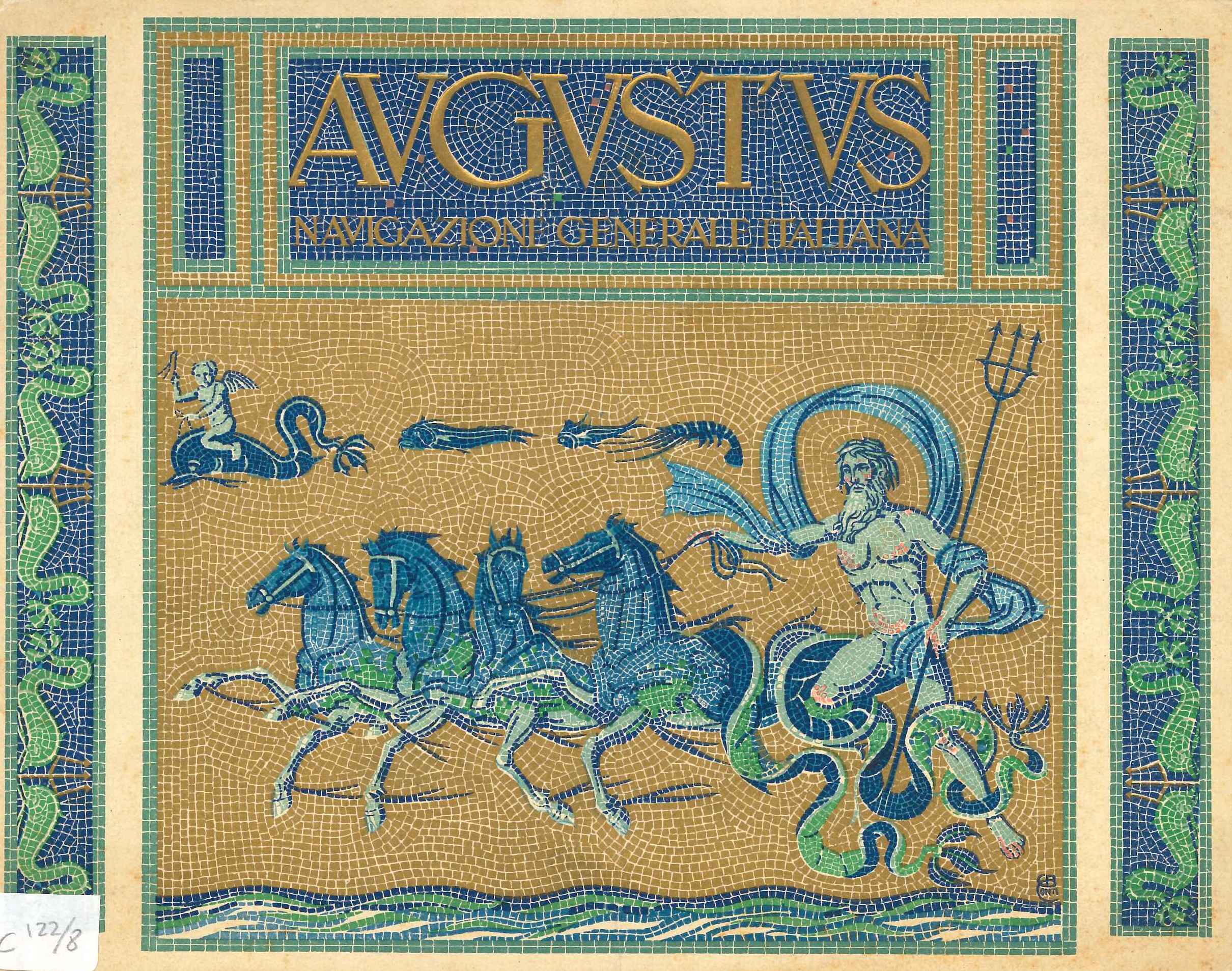
Cover of the brochure of the ship Augustus
The Navigazione Generale Italiana was a company founded in 1881, thanks to th merger between Ignazio & Vincenzo Florio of Palermo and Raffaele Rubattino of Genoa. It disappeared in 1932.
The library conserves publicity brochures of its best known ships: Giulio Cesare, the Duilio, el Roma, the Augustus or the Virgilio. The company itself catalogued its ships as “floating palaces” and we can see this in the images of the first class rooms and cabins, aimed at providing the luxury and comfort of its passengers.
First class spaces, the luxury and comfort of which are very clear, of the ship Giulio Cesare
The entertainment of the cruise ship passengers was taken very seriously, and it was announced as such in the company’s brochures, which sold the voyage in the ship as a moment of pleasure and leisure difficult to forget.
In the images, moments of fun and pleasure of the passengers of the ship Giulio Cesare
Cunard Line
The Cunard Line is a British naval company founded in 1838 by the tycoon Samuel Cunard that continues to be active. Among its best known ships it is worth highlighting the RMS Carpathia, the RMS Lusitania and the RMS Mauretania, which were the biggest and the fastest of their time.
Brochures are conserved of this company that talk about the second and third class. Thanks to these, we can appreciate the major difference that existed between the first class passengers, more luxurious and with services aimed at ensuring the comfort and providing the entertainment of the passengers, compared with the previous companies.
Third class of the Cunard Line ships
Biblioteca



